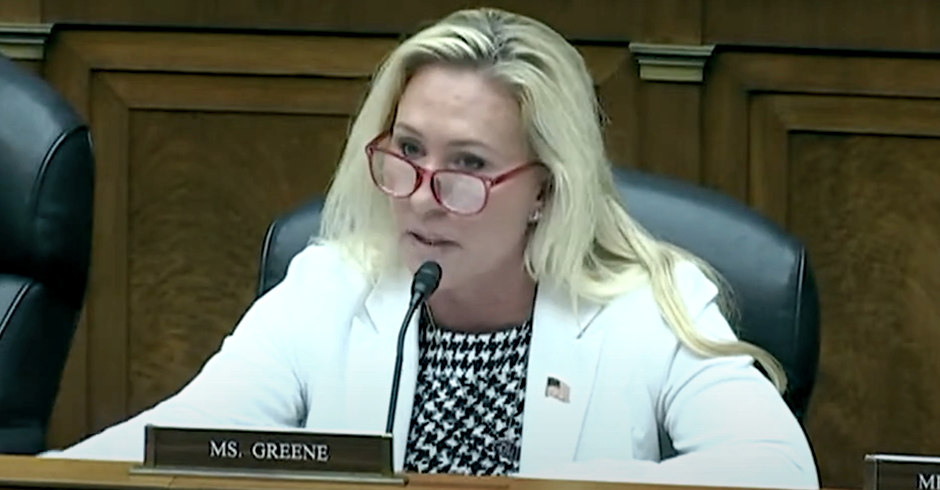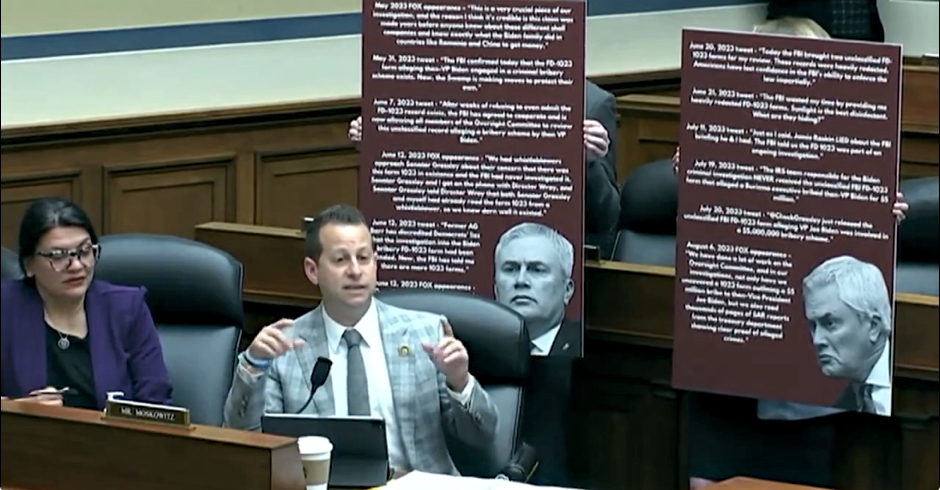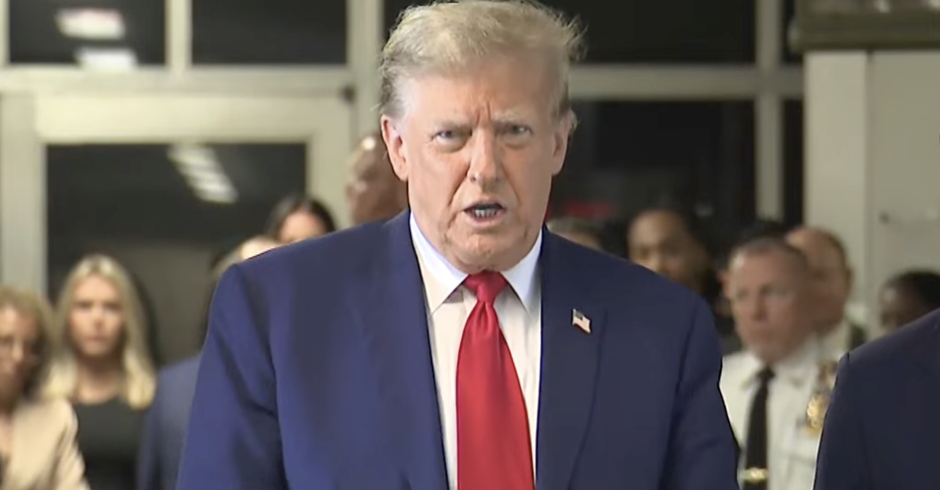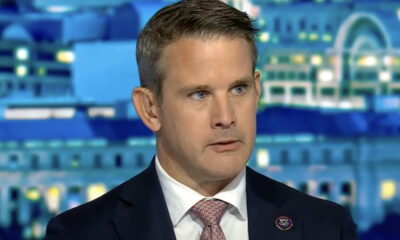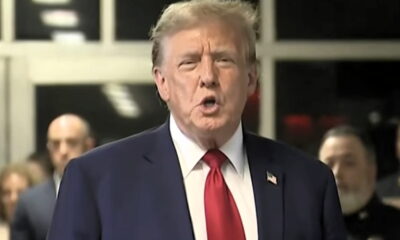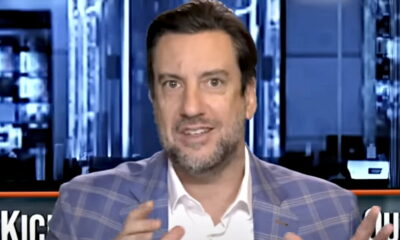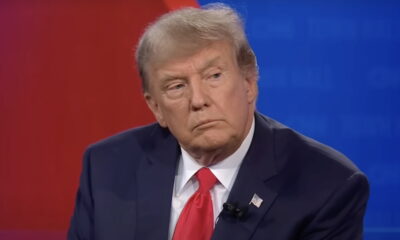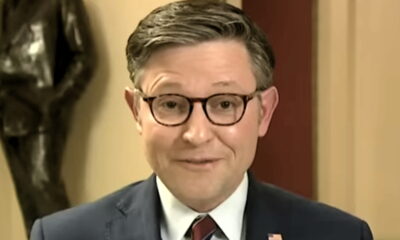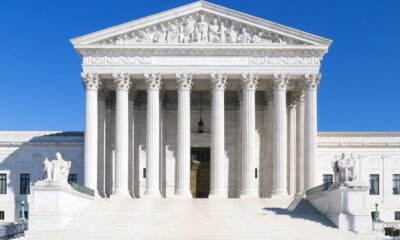Obama To UN: Ambassador Chris Stevens ‘Embodied The Best’ Of The US (Video)
Today President Obama told the United Nations General Assembly that murdered U.N. Ambassador Chris Stevens “was killed in the city that he helped to save” and “embodied the best of America.”
Below are President Obama’s remarks to the U.N. General Assembly this morning, as prepared for delivery, and the full video.
https://youtube.com/watch?v=KcXjhikIz6o%3Fversion%3D3%26hl%3Den_US
THE WHITE HOUSE
Office of the Press Secretary
_________________________________________________________________
For Immediate Release September 25, 2012
REMARKS BY THE PRESIDENT
TO THE U.N. GENERAL ASSEMBLY
Â
United Nations Headquarters
New York, New York
Â
Â
10:22 A.M. EDT
Â
Â
THE PRESIDENT: Mr. President, Mr. Secretary General, fellow delegates, ladies and gentleman: I would like to begin today by telling you about an American named Chris Stevens.
Â
Chris was born in a town called Grass Valley, California, the son of a lawyer and a musician. As a young man, Chris joined the Peace Corps, and taught English in Morocco. And he came to love and respect the people of North Africa and the Middle East. He would carry that commitment throughout his life. As a diplomat, he worked from Egypt to Syria, from Saudi Arabia to Libya. He was known for walking the streets of the cities where he worked — tasting the local food, meeting as many people as he could, speaking Arabic, listening with a broad smile.
Â
Chris went to Benghazi in the early days of the Libyan revolution, arriving on a cargo ship. As America’s representative, he helped the Libyan people as they coped with violent conflict, cared for the wounded, and crafted a vision for the future in which the rights of all Libyans would be respected. And after the revolution, he supported the birth of a new democracy, as Libyans held elections, and built new institutions, and began to move forward after decades of dictatorship.
Â
Chris Stevens loved his work. He took pride in the country he served, and he saw dignity in the people that he met. And two weeks ago, he traveled to Benghazi to review plans to establish a new cultural center and modernize a hospital. That’s when America’s compound came under attack. Along with three of his colleagues, Chris was killed in the city that he helped to save. He was 52 years old.
Â
I tell you this story because Chris Stevens embodied the best of America. Like his fellow Foreign Service officers, he built bridges across oceans and cultures, and was deeply invested in the international cooperation that the United Nations represents. He acted with humility, but he also stood up for a set of principles — a belief that individuals should be free to determine their own destiny, and live with liberty, dignity, justice, and opportunity.
Â
The attacks on the civilians in Benghazi were attacks on America. We are grateful for the assistance we received from the Libyan government and from the Libyan people. There should be no doubt that we will be relentless in tracking down the killers and bringing them to justice. And I also appreciate that in recent days, the leaders of other countries in the region — including Egypt, Tunisia and Yemen — have taken steps to secure our diplomatic facilities, and called for calm. And so have religious authorities around the globe.
Â
But understand, the attacks of the last two weeks are not simply an assault on America. They are also an assault on the very ideals upon which the United Nations was founded — the notion that people can resolve their differences peacefully; that diplomacy can take the place of war; that in an interdependent world, all of us have a stake in working towards greater opportunity and security for our citizens.
Â
If we are serious about upholding these ideals, it will not be enough to put more guards in front of an embassy, or to put out statements of regret and wait for the outrage to pass. If we are serious about these ideals, we must speak honestly about the deeper causes of the crisis — because we face a choice between the forces that would drive us apart and the hopes that we hold in common.
Â
Today, we must reaffirm that our future will be determined by people like Chris Stevens — and not by his killers. Today, we must declare that this violence and intolerance has no place among our United Nations.
Â
It has been less than two years since a vendor in Tunisia set himself on fire to protest the oppressive corruption in his country, and sparked what became known as the Arab Spring. And since then, the world has been captivated by the transformation that’s taken place, and the United States has supported the forces of change.
Â
We were inspired by the Tunisian protests that toppled a dictator, because we recognized our own beliefs in the aspiration of men and women who took to the streets.
Â
We insisted on change in Egypt, because our support for democracy ultimately put us on the side of the people.
Â
We supported a transition of leadership in Yemen, because the interests of the people were no longer being served by a corrupt status quo.
Â
We intervened in Libya alongside a broad coalition, and with the mandate of the United Nations Security Council, because we had the ability to stop the slaughter of innocents, and because we believed that the aspirations of the people were more powerful than a tyrant.
Â
And as we meet here, we again declare that the regime of Bashar al-Assad must come to an end so that the suffering of the Syrian people can stop and a new dawn can begin.
Â
We have taken these positions because we believe that freedom and self-determination are not unique to one culture. These are not simply American values or Western values — they are universal values. And even as there will be huge challenges to come with a transition to democracy, I am convinced that ultimately government of the people, by the people, and for the people is more likely to bring about the stability, prosperity, and individual opportunity that serve as a basis for peace in our world.
Â
So let us remember that this is a season of progress. For the first time in decades, Tunisians, Egyptians and Libyans voted for new leaders in elections that were credible, competitive, and fair. This democratic spirit has not been restricted to the Arab world. Over the past year, we’ve seen peaceful transitions of power in Malawi and Senegal, and a new President in Somalia. In Burma, a President has freed political prisoners and opened a closed society, a courageous dissident has been elected to parliament, and people look forward to further reform. Around the globe, people are making their voices heard, insisting on their innate dignity, and the right to determine their future.
Â
And yet the turmoil of recent weeks reminds us that the path to democracy does not end with the casting of a ballot. Nelson Mandela once said: “To be free is not merely to cast off one’s chains, but to live in a way that respects and enhances the freedom of others.” (Applause.)
Â
True democracy demands that citizens cannot be thrown in jail because of what they believe, and that businesses can be opened without paying a bribe. It depends on the freedom of citizens to speak their minds and assemble without fear, and on the rule of law and due process that guarantees the rights of all people.
Â
In other words, true democracy — real freedom — is hard work. Those in power have to resist the temptation to crack down on dissidents. In hard economic times, countries must be tempted — may be tempted to rally the people around perceived enemies, at home and abroad, rather than focusing on the painstaking work of reform.
Â
Moreover, there will always be those that reject human progress — dictators who cling to power, corrupt interests that depend on the status quo, and extremists who fan the flames of hate and division. From Northern Ireland to South Asia, from Africa to the Americas, from the Balkans to the Pacific Rim, we’ve witnessed convulsions that can accompany transitions to a new political order.
Â
At time, the conflicts arise along the fault lines of race or tribe. And often they arise from the difficulties of reconciling tradition and faith with the diversity and interdependence of the modern world. In every country, there are those who find different religious beliefs threatening; in every culture, those who love freedom for themselves must ask themselves how much they’re willing to tolerate freedom for others.
Â
That is what we saw play out in the last two weeks, as a crude and disgusting video sparked outrage throughout the Muslim world. Now, I have made it clear that the United States government had nothing to do with this video, and I believe its message must be rejected by all who respect our common humanity.
It is an insult not only to Muslims, but to America as well — for as the city outside these walls makes clear, we are a country that has welcomed people of every race and every faith. We are home to Muslims who worship across our country. We not only respect the freedom of religion, we have laws that protect individuals from being harmed because of how they look or what they believe. We understand why people take offense to this video because millions of our citizens are among them.
Â
I know there are some who ask why we don’t just ban such a video. And the answer is enshrined in our laws: Our Constitution protects the right to practice free speech.
Â
Here in the United States, countless publications provoke offense. Like me, the majority of Americans are Christian, and yet we do not ban blasphemy against our most sacred beliefs. As President of our country and Commander-in-Chief of our military, I accept that people are going to call me awful things every day — (laughter) — and I will always defend their right to do so. (Applause.)
Â
Americans have fought and died around the globe to protect the right of all people to express their views, even views that we profoundly disagree with. We do not do so because we support hateful speech, but because our founders understood that without such protections, the capacity of each individual to express their own views and practice their own faith may be threatened. We do so because in a diverse society, efforts to restrict speech can quickly become a tool to silence critics and oppress minorities.
Â
We do so because given the power of faith in our lives, and the passion that religious differences can inflame, the strongest weapon against hateful speech is not repression; it is more speech — the voices of tolerance that rally against bigotry and blasphemy, and lift up the values of understanding and mutual respect.
Â
Now, I know that not all countries in this body share this particular understanding of the protection of free speech. We recognize that. But in 2012, at a time when anyone with a cell phone can spread offensive views around the world with the click of a button, the notion that we can control the flow of information is obsolete. The question, then, is how do we respond?
Â
And on this we must agree: There is no speech that justifies mindless violence. (Applause.) There are no words that excuse the killing of innocents. There’s no video that justifies an attack on an embassy. There’s no slander that provides an excuse for people to burn a restaurant in Lebanon, or destroy a school in Tunis, or cause death and destruction in Pakistan.
Â
In this modern world with modern technologies, for us to respond in that way to hateful speech empowers any individual who engages in such speech to create chaos around the world. We empower the worst of us if that’s how we respond.
Â
More broadly, the events of the last two weeks also speak to the need for all of us to honestly address the tensions between the West and the Arab world that is moving towards democracy.
Â
Now, let me be clear: Just as we cannot solve every problem in the world, the United States has not and will not seek to dictate the outcome of democratic transitions abroad. We do not expect other nations to agree with us on every issue, nor do we assume that the violence of the past weeks or the hateful speech by some individuals represent the views of the overwhelming majority of Muslims, any more than the views of the people who produced this video represents those of Americans. However, I do believe that it is the obligation of all leaders in all countries to speak out forcefully against violence and extremism. (Applause.)
Â
It is time to marginalize those who — even when not directly resorting to violence — use hatred of America, or the West, or Israel, as the central organizing principle of politics. For that only gives cover, and sometimes makes an excuse, for those who do resort to violence.
Â
That brand of politics — one that pits East against West, and South against North, Muslims against Christians and Hindu and Jews — can’t deliver on the promise of freedom. To the youth, it offers only false hope. Burning an American flag does nothing to provide a child an education. Smashing apart a restaurant does not fill an empty stomach. Attacking an embassy won’t create a single job. That brand of politics only makes it harder to achieve what we must do together: educating our children, and creating the opportunities that they deserve; protecting human rights, and extending democracy’s promise.
Â
Understand America will never retreat from the world. We will bring justice to those who harm our citizens and our friends, and we will stand with our allies. We are willing to partner with countries around the world to deepen ties of trade and investment, and science and technology, energy and development — all efforts that can spark economic growth for all our people and stabilize democratic change.
Â
But such efforts depend on a spirit of mutual interest and mutual respect. No government or company, no school or NGO will be confident working in a country where its people are endangered. For partnerships to be effective our citizens must be secure and our efforts must be welcomed.
Â
A politics based only on anger — one based on dividing the world between “us” and “them” — not only sets back international cooperation, it ultimately undermines those who tolerate it. All of us have an interest in standing up to these forces.
Â
Let us remember that Muslims have suffered the most at the hands of extremism. On the same day our civilians were killed in Benghazi, a Turkish police officer was murdered in Istanbul only days before his wedding; more than 10 Yemenis were killed in a car bomb in Sana’a; several Afghan children were mourned by their parents just days after they were killed by a suicide bomber in Kabul.
Â
The impulse towards intolerance and violence may initially be focused on the West, but over time it cannot be contained. The same impulses toward extremism are used to justify war between Sunni and Shia, between tribes and clans. It leads not to strength and prosperity but to chaos. In less than two years, we have seen largely peaceful protests bring more change to Muslim-majority countries than a decade of violence. And extremists understand this. Because they have nothing to offer to improve the lives of people, violence is their only way to stay relevant. They don’t build; they only destroy.
Â
It is time to leave the call of violence and the politics of division behind. On so many issues, we face a choice between the promise of the future, or the prisons of the past. And we cannot afford to get it wrong. We must seize this moment. And America stands ready to work with all who are willing to embrace a better future.
Â
The future must not belong to those who target Coptic Christians in Egypt — it must be claimed by those in Tahrir Square who chanted, “Muslims, Christians, we are one.” The future must not belong to those who bully women — it must be shaped by girls who go to school, and those who stand for a world where our daughters can live their dreams just like our sons. (Applause.)
Â
The future must not belong to those corrupt few who steal a country’s resources — it must be won by the students and entrepreneurs, the workers and business owners who seek a broader prosperity for all people. Those are the women and men that America stands with; theirs is the vision we will support.
Â
The future must not belong to those who slander the prophet of Islam. But to be credible, those who condemn that slander must also condemn the hate we see in the images of Jesus Christ that are desecrated, or churches that are destroyed, or the Holocaust that is denied. (Applause.)
Â
Let us condemn incitement against Sufi Muslims and Shiite pilgrims. It’s time to heed the words of Gandhi: “Intolerance is itself a form of violence and an obstacle to the growth of a true democratic spirit.” (Applause.) Together, we must work towards a world where we are strengthened by our differences, and not defined by them. That is what America embodies, that’s the vision we will support.
Â
Among Israelis and Palestinians, the future must not belong to those who turn their backs on a prospect of peace. Let us leave behind those who thrive on conflict, those who reject the right of Israel to exist. The road is hard, but the destination is clear — a secure, Jewish state of Israel and an independent, prosperous Palestine. (Applause.) Understanding that such a peace must come through a just agreement between the parties, America will walk alongside all who are prepared to make that journey.
Â
In Syria, the future must not belong to a dictator who massacres his people. If there is a cause that cries out for protest in the world today, peaceful protest, it is a regime that tortures children and shoots rockets at apartment buildings. And we must remain engaged to assure that what began with citizens demanding their rights does not end in a cycle of sectarian violence.
Â
Together, we must stand with those Syrians who believe in a different vision — a Syria that is united and inclusive, where children don’t need to fear their own government, and all Syrians have a say in how they are governed — Sunnis and Alawites, Kurds and Christians. That’s what America stands for. That is the outcome that we will work for — with sanctions and consequences for those who persecute, and assistance and support for those who work for this common good. Because we believe that the Syrians who embrace this vision will have the strength and the legitimacy to lead.
Â
In Iran, we see where the path of a violent and unaccountable ideology leads. The Iranian people have a remarkable and ancient history, and many Iranians wish to enjoy peace and prosperity alongside their neighbors. But just as it restricts the rights of its own people, the Iranian government continues to prop up a dictator in Damascus and supports terrorist groups abroad. Time and again, it has failed to take the opportunity to demonstrate that its nuclear program is peaceful, and to meet its obligations to the United Nations.
Â
So let me be clear. America wants to resolve this issue through diplomacy, and we believe that there is still time and space to do so. But that time is not unlimited. We respect the right of nations to access peaceful nuclear power, but one of the purposes of the United Nations is to see that we harness that power for peace. And make no mistake, a nuclear-armed Iran is not a challenge that can be contained. It would threaten the elimination of Israel, the security of Gulf nations, and the stability of the global economy. It risks triggering a nuclear-arms race in the region, and the unraveling of the non-proliferation treaty. That’s why a coalition of countries is holding the Iranian government accountable. And that’s why the United States will do what we must to prevent Iran from obtaining a nuclear weapon.
Â
We know from painful experience that the path to security and prosperity does not lie outside the boundaries of international law and respect for human rights. That’s why this institution was established from the rubble of conflict. That is why liberty triumphed over tyranny in the Cold War. And that is the lesson of the last two decades as well.
Â
History shows that peace and progress come to those who make the right choices. Nations in every part of the world have traveled this difficult path. Europe, the bloodiest battlefield of the 20th century, is united, free and at peace. From Brazil to South Africa, from Turkey to South Korea, from India to Indonesia, people of different races, religions, and traditions have lifted millions out of poverty, while respecting the rights of their citizens and meeting their responsibilities as nations.
Â
And it is because of the progress that I’ve witnessed in my own lifetime, the progress that I’ve witnessed after nearly four years as President, that I remain ever hopeful about the world that we live in. The war in Iraq is over. American troops have come home. We’ve begun a transition in Afghanistan, and America and our allies will end our war on schedule in 2014. Al Qaeda has been weakened, and Osama bin Laden is no more. Nations have come together to lock down nuclear materials, and America and Russia are reducing our arsenals. We have seen hard choices made — from Naypyidaw to Cairo to Abidjan — to put more power in the hands of citizens.
Â
At a time of economic challenge, the world has come together to broaden prosperity. Through the G20, we have partnered with emerging countries to keep the world on the path of recovery. America has pursued a development agenda that fuels growth and breaks dependency, and worked with African leaders to help them feed their nations. New partnerships have been forged to combat corruption and promote government that is open and transparent, and new commitments have been made through the Equal Futures Partnership to ensure that women and girls can fully participate in politics and pursue opportunity. And later today, I will discuss our efforts to combat the scourge of human trafficking.
Â
All these things give me hope. But what gives me the most hope is not the actions of us, not the actions of leaders — it is the people that I’ve seen. The American troops who have risked their lives and sacrificed their limbs for strangers half a world away; the students in Jakarta or Seoul who are eager to use their knowledge to benefit mankind; the faces in a square in Prague or a parliament in Ghana who see democracy giving voice to their aspirations; the young people in the favelas of Rio and the schools of Mumbai whose eyes shine with promise. These men, women, and children of every race and every faith remind me that for every angry mob that gets shown on television, there are billions around the world who share similar hopes and dreams. They tell us that there is a common heartbeat to humanity.
Â
So much attention in our world turns to what divides us. That’s what we see on the news. That’s what consumes our political debates. But when you strip it all away, people everywhere long for the freedom to determine their destiny; the dignity that comes with work; the comfort that comes with faith; and the justice that exists when governments serve their people — and not the other way around.
Â
The United States of America will always stand up for these aspirations, for our own people and for people all across the world. That was our founding purpose. That is what our history shows. That is what Chris Stevens worked for throughout his life.
Â
And I promise you this: Long after the killers are brought to justice, Chris Stevens’s legacy will live on in the lives that he touched — in the tens of thousands who marched against violence through the streets of Benghazi; in the Libyans who changed their Facebook photo to one of Chris; in the signs that read, simply, “Chris Stevens was a friend to all Libyans.”
Â
They should give us hope. They should remind us that so long as we work for it, justice will be done, that history is on our side, and that a rising tide of liberty will never be reversed.
Â
Thank you very much. (Applause.)
Â
END 10:16 A.M. EDT

Enjoy this piece?
… then let us make a small request. The New Civil Rights Movement depends on readers like you to meet our ongoing expenses and continue producing quality progressive journalism. Three Silicon Valley giants consume 70 percent of all online advertising dollars, so we need your help to continue doing what we do.
NCRM is independent. You won’t find mainstream media bias here. From unflinching coverage of religious extremism, to spotlighting efforts to roll back our rights, NCRM continues to speak truth to power. America needs independent voices like NCRM to be sure no one is forgotten.
Every reader contribution, whatever the amount, makes a tremendous difference. Help ensure NCRM remains independent long into the future. Support progressive journalism with a one-time contribution to NCRM, or click here to become a subscriber. Thank you. Click here to donate by check.
 |
